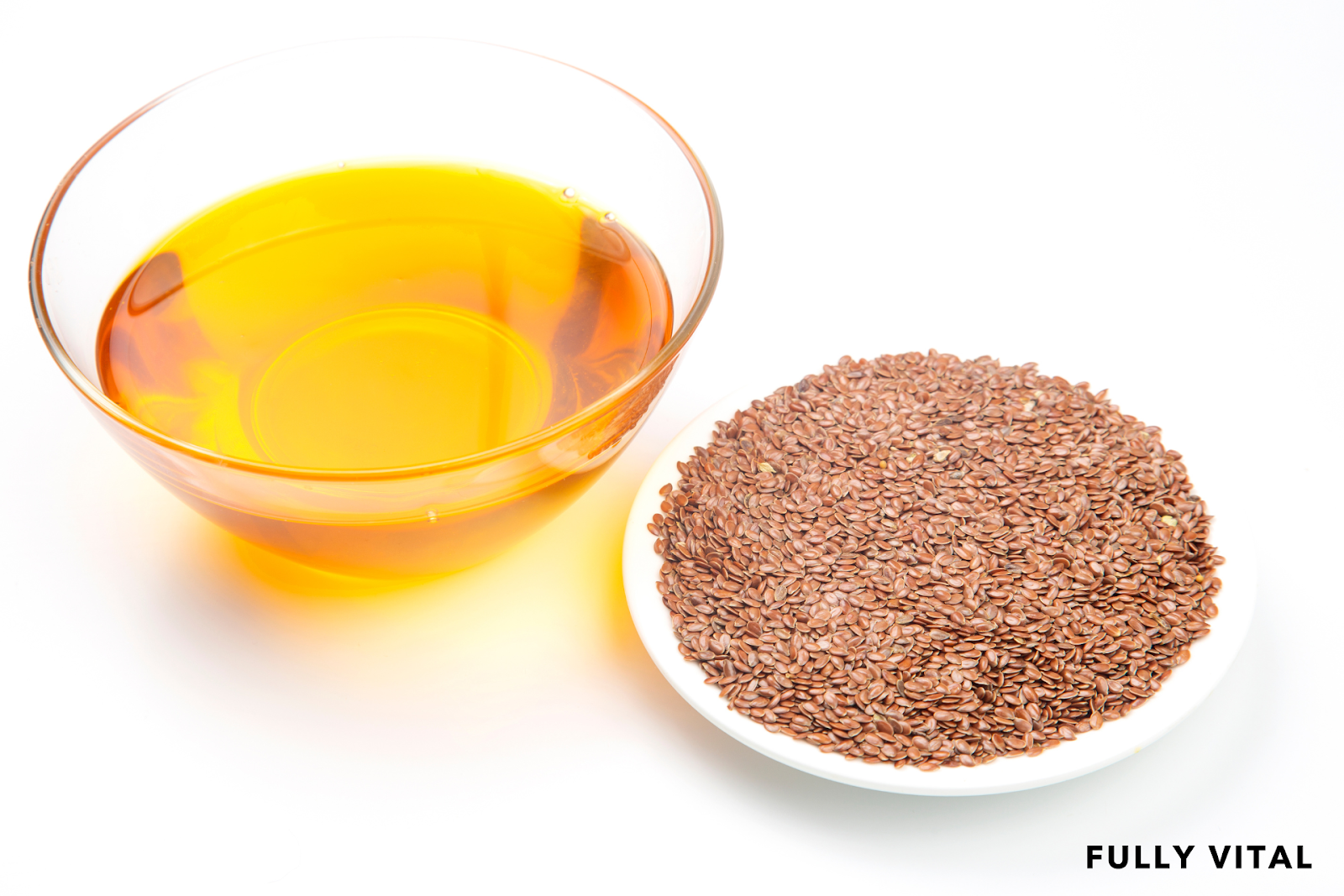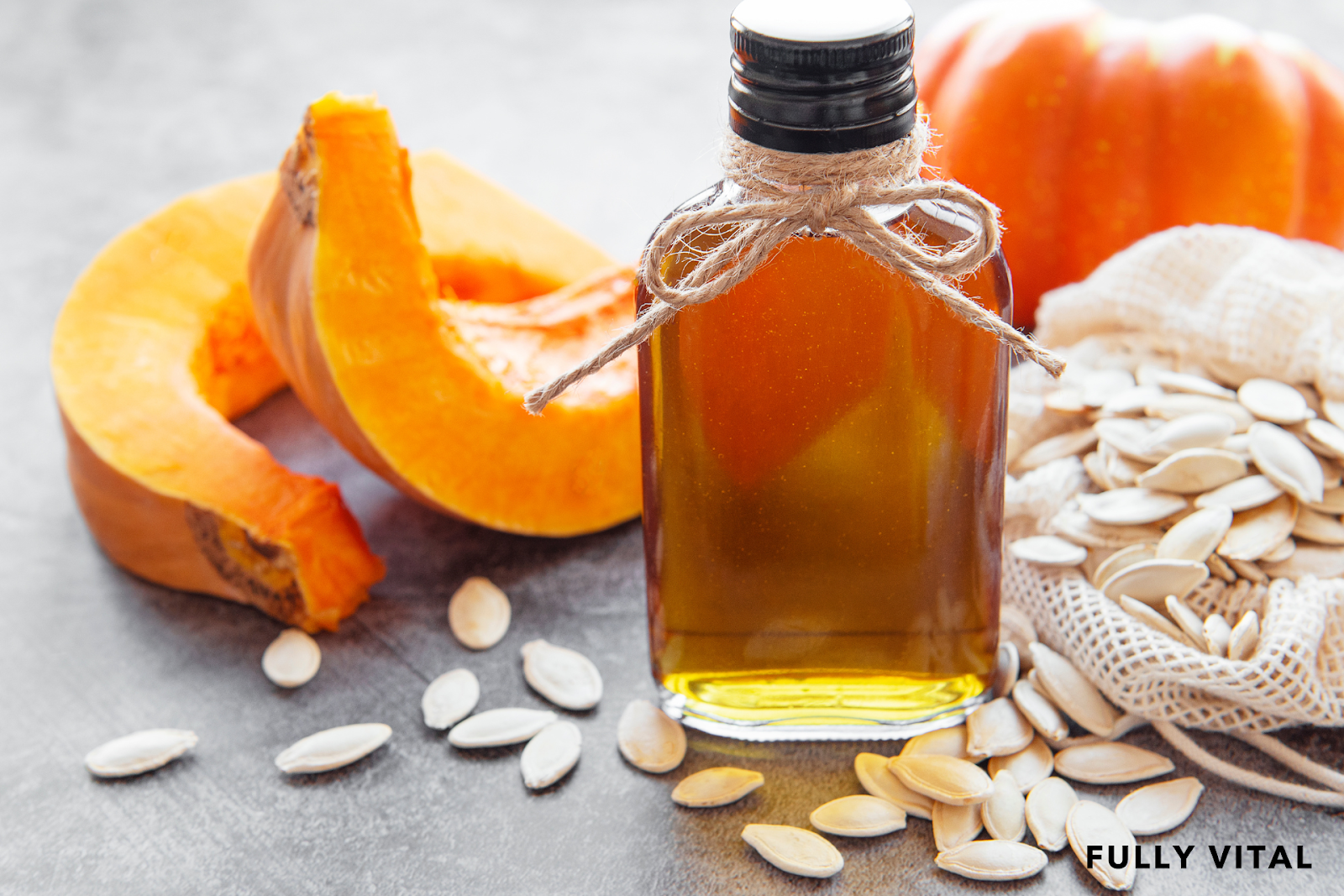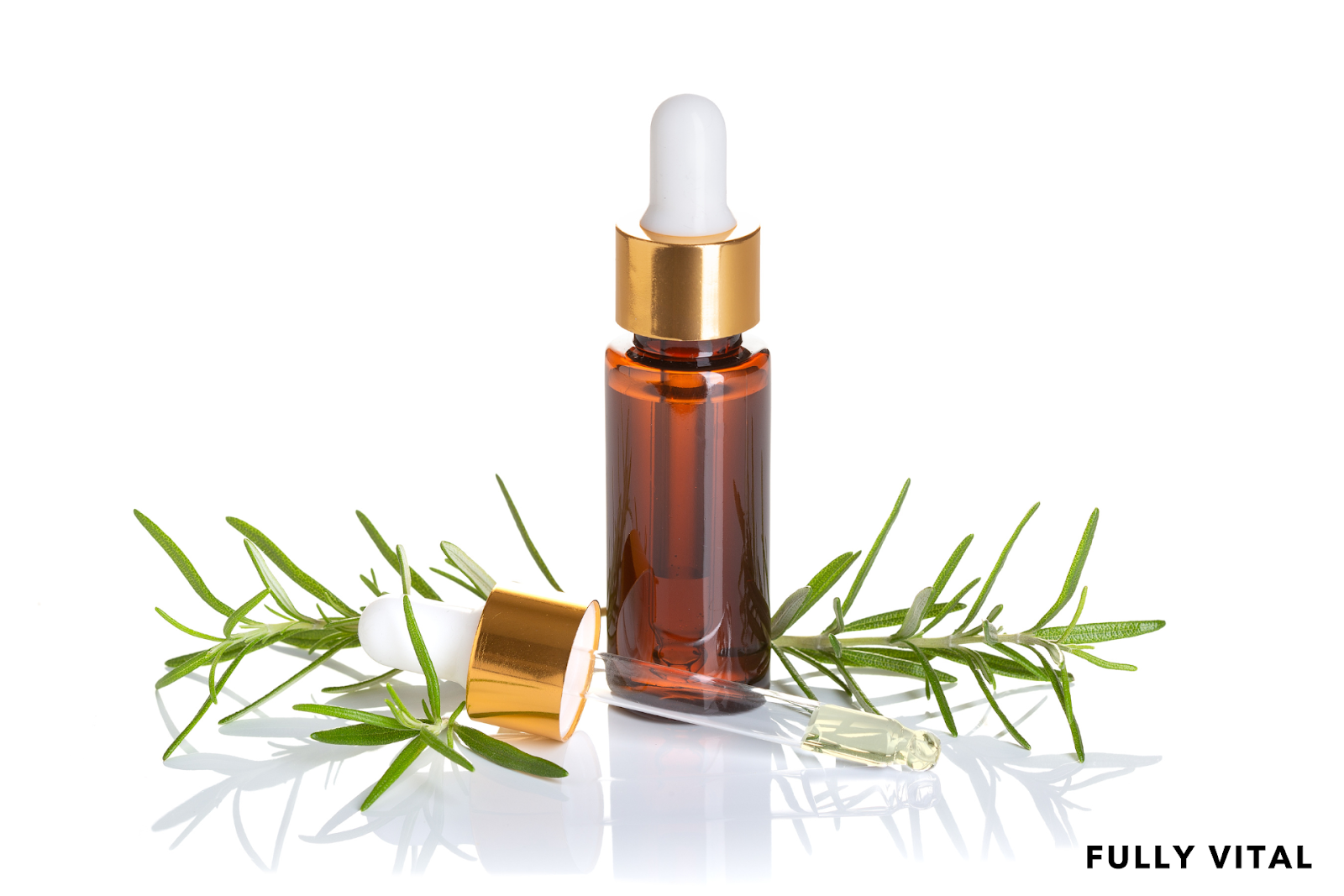
Flaxseed Oil: The Ultimate Hair Hydrator?
When it comes to maintaining luscious and healthy hair, moisture is non-negotiable.
Yet, many of us struggle with dry, brittle strands that scream for hydration.
The quest for the elixir that will seal in that much-needed moisture often leads us to an array of products, each promising miraculous results.
However, amidst a sea of hair care ingredients, flaxseed oil emerges as not just a trend but a potential staple for those seeking a natural route to hair hydration.
Why is hair hydration so pivotal, and what makes flaxseed oil a candidate worth considering? This deep dive explores flaxseed oil's role in hair health, its mechanisms, its benefits across various hair types, and how to incorporate it into your hair care routine.
We're not just following the hype; we're after the facts and science behind flaxseed oil's growing reputation as a hydrator.
Stay tuned as we unpack the potential of flaxseed oil and whether it lives up to the title of 'The Ultimate Hair Hydrator.'

I LOVE MY HAIR NOW
FullyVital hair serum and hair vitamins made tremendous improvements in my hair. I truly love my hair now.
Shop Hair ProductsWhat Exactly is Flaxseed Oil?
Flaxseed oil, also known as linseed oil, is a product derived from the seeds of the flax plant (Linum usitatissimum).
This plant is not a newfound discovery; it has been cultivated for thousands of years for both food and fiber.
The seeds themselves are a goldmine of nutrients, including dietary fiber, lignans, and most notably, alpha-linolenic acid (ALA), a type of omega-3 fatty acid.
Can Flaxseed Oil Truly Improve Hair Health?
The Role of Hydration in Hair Health
Moisture is crucial in keeping hair flexible, resilient, and strong.
Dry hair can become brittle and prone to breakage, while properly hydrated hair can maintain its elasticity and strength.
Beyond aesthetics, hydration affects the scalp's health, which is foundational to the growth and vitality of hair.
The Scientific Backing for Flaxseed Oil's Effects on Hair
The composition of flaxseed oil—a rich source of omega-3 fatty acids—appears to be linked with improved hair health.
These fatty acids are known to nourish the hair follicles, contribute to hair growth, and offer anti-inflammatory effects that can support scalp health.1
While more studies are needed, preliminary research and anecdotal evidence suggest that flaxseed oil could be beneficial in maintaining healthy hair.
How Does Flaxseed Oil Promote Hair Hydration?
The Underlying Mechanisms
Flaxseed oil is thought to work in several ways.
Its barrier-creating properties may help the scalp retain moisture, while the omega-3 acids assist in nourishing the hair follicle and strands.
When applied to hair, flaxseed oil may also provide a protective layer, aiding in the prevention of damage from environmental stresses like pollution and UV rays.
Key Nutrients in Flaxseed Oil Beneficial for Hair
Omega-3 fatty acids are just the start; flaxseed oil also contains vitamin E, known for its antioxidant properties and support in reducing oxidative stress.2
Additionally, the oil could act as a means to deliver these vital nutrients to the scalp and hair more efficiently, promoting the overall health of the hair from the root to the tip.
What Are the Benefits of Flaxseed Oil for Different Hair Types?
Effects on Curly and Coarse Hair
Curly and coarse hair often struggles with retaining moisture due to its spiral structure, which slows down the natural distribution of oils from the scalp to the hair ends.
Flaxseed oil can be particularly beneficial for this hair type as it can provide the necessary hydration and help define curls without weighing them down.
Its use can result in less frizz and increased smoothness.
Impacts on Fine and Straight Hair
Those with fine and straight hair might fear that oils could lead to a greasy appearance.
However, flaxseed oil is known to be lightweight.
When used in moderation, it can enhance shine and hydration without causing an oily scalp.
Users can expect a silkier texture and a healthy sheen without the unwanted heavy residue.
Uses for Chemically Treated or Damaged Hair
Chemically treated or heat-damaged hair is particularly susceptible to dryness and breakage.
Flaxseed oil can serve as a reparative treatment due to its rich nutrient profile.
It can help strengthen hair and protect against further damage.
With regular use, it could assist in restoring luster and vitality to weakened strands.

What Is the Best Way to Use Flaxseed Oil for Hair?
Methods for Direct Application
Flaxseed oil can be massaged directly into the scalp and applied to hair as a pre-shampoo treatment or a leave-in conditioner, depending on personal preference and hair type.
A little goes a long way—just a few drops are often sufficient.
It can also be mixed with other natural oils for a customized hair treatment.
Adding Flaxseed Oil to Your Diet and Routine
Incorporating flaxseed oil into the diet is another route to benefiting hair health, as nutrition plays a significant part in the welfare of hair follicles.
Adding it to salads, smoothies, or consuming flaxseed oil capsules are ways to harness its benefits from the inside out.
Optimal Frequency and Dosage for Use
Finding the right frequency and dosage for using flaxseed oil may require some trial and error.
Typically, once or twice a week can be effective for most hair types.
Listening to your hair's response to the treatment and adjusting accordingly will yield the best results.
Are There Any Side Effects or Considerations When Using Flaxseed Oil?
Who Should Refrain From Using It
Most people can use flaxseed oil without issues.
However, individuals with certain medical conditions such as bleeding disorders, those on anticoagulant or anti-platelet medications, or those with a known allergy to flaxseed should avoid it.
Potential Interactions and Allergic Reactions
As with any product, the potential for allergic reactions exists.
It's recommended to conduct a patch test before full application.
Furthermore, while interactions with other medications are not common, consultation with a healthcare provider is recommended for those with underlying health conditions.
How Does Flaxseed Oil Compare to Other Natural Hair Hydrators?
A Look at Coconut Oil, Argan Oil, etc.
Coconut oil has been a favorite for its deep penetrating characteristics, while argan oil is known for its high vitamin E content.3
However, flaxseed oil's high omega-3 content sets it apart as it offers unique anti-inflammatory properties that can support scalp health and reduce hair breakage.
Reasons to Prefer Flaxseed Oil
Some might gravitate towards flaxseed oil over others due to its lighter consistency and potential for less buildup, offering a suitable option for those with fine hair or a more oily scalp.
The oil's nutrient composition may also be a decisive factor for individuals looking for specific benefits such as enhanced elasticity and reduced inflammation.

What Does the Future Hold for Flaxseed Oil in Hair Care?
Insights into Current Research
Ongoing research into flaxseed oil's benefits for hair health reveals a growing interest in the use of natural products.
As studies continue, the potential for new applications and formulations incorporating flaxseed oil could expand.
Predictions on Trends and Product Innovations
Given the shifting consumer preference towards natural and sustainable products, flaxseed oil is likely to feature more prominently in upcoming hair care lines.
We may see it included in a variety of products, from shampoos to hair masks, catering to an audience eager for clean beauty solutions.
Immerse Yourself in the Realm of Vitality and Gorgeous Locks Now!Indulge in the transformative effects of our Fully Vital hair growth products. Our scientifically supported formulations aim to arrest the aging process of your hair, enhancing both its health and your confidence. Leave behind the frustration of lackluster, thinning hair, and instead relish in the exceptional shine and volume promised by our products. Commence a voyage toward healthier, fuller hair today with Fully Vital. We're not solely focused on appearance; we're dedicated to making you feel great too. Our robust hair growth formulations ensure a splendid, more meaningful, and healthy connection with your hair. Why delay? Embrace the dawn of a new era in hair vitality. Gift yourself with the potency of youthful, vibrant locks now. Your expedition toward a fully vital hair life begins here. Rest assured, your hair will express its gratitude! Feel Youthful, Live Vibrantly, Be Fully Vital! |
Final Thoughts On Flaxseed Oil
Flaxseed oil stands out in the realm of hair care, playing a versatile and effective role in maintaining hair hydration and overall health.
Whether used as a topical treatment or integrated into one's diet, the nutrients within flaxseed oil, particularly the omega-3 fatty acids, offer a natural path to nourishing hair from the inside out.
While not a panacea, its proven benefits make it a strong contender for those seeking to revitalize their hair using nature's remedies.
Despite the varied results, which depend on individual hair types and conditions, flaxseed oil remains a promising addition to a comprehensive hair care regimen.
With its potential to hydrate, protect, and strengthen, flaxseed oil may just earn its place as a go-to solution for those pursuing the ultimate goal of healthy, vibrant hair.
Check out our recent blogs:
- Rogaine Or Fully Vital: Decoding The Secrets To Thicker, Fuller Hair
- All About Hair Volumizer: A Comprehensive Guide For Gorgeous Locks
- Mizani Vs. Fully Vital: A Comprehensive Comparison For Textured Hair Care
Frequently Asked Questions About Flaxseed Oil
Can flaxseed oil be used on the scalp?
Yes, flaxseed oil can be massaged into the scalp to promote hydration, reduce dryness, and support healthy hair growth.
Does flaxseed oil protect hair from environmental damage?
Flaxseed oil can provide a protective layer on the hair, which may help shield it from damage caused by UV rays and pollution.
Will flaxseed oil make my hair grow faster?
While flaxseed oil can create a healthier scalp environment conducive to growth, there's no definitive evidence that it directly speeds up hair growth.
Can I leave flaxseed oil in my hair overnight?
Yes, flaxseed oil can be used as an overnight hair treatment, which allows more time for the hair to absorb its nutrients fully.
Is flaxseed oil good for a dry, itchy scalp?
Due to its anti-inflammatory properties, flaxseed oil may soothe a dry, itchy scalp and help address underlying scalp conditions.
Can flaxseed oil be used as a styling product?
While not primarily a styling product, a small amount of flaxseed oil can help tame frizz and add shine when styling hair.
How should flaxseed oil be stored to maintain its potency?
Store flaxseed oil in a cool, dark place, preferably in an airtight container, to prevent oxidation and preserve its quality.
Can cooking with flaxseed oil benefit hair health?
While it's best not to heat flaxseed oil to preserve its nutritional value, incorporating it into your diet (e.g., as a salad dressing) can benefit hair health from the inside out.
Is flaxseed oil effective for all ethnic hair types?
Flaxseed oil is versatile and can be effective on a wide range of hair textures and ethnicities, but the method of application may vary depending on the individual's hair type.
How long does it take to see results from using flaxseed oil on hair?
Some users may notice improved hair texture and hydration within a few weeks, while significant changes in hair health may take several months of regular use.
Sources:
- Somaia Al-Madhagy, Ashmawy, N. S., Ayat Mamdouh, Eldahshan, O. A., & Farag, M. A. (2023). A comprehensive review of the health benefits of flaxseed oil in relation to its chemical composition and comparison with other omega-3-rich oils. European Journal of Medical Research, 28(1). https://doi.org/10.1186/s40001-023-01203-6
- Sepidarkish, M., Morvaridzadeh, M., Akbari-Fakhrabadi, M., Almasi-Hashiani, A., Rezaeinejad, M., & Heshmati, J. (2019). Effect of omega-3 fatty acid plus vitamin E Co-Supplementation on lipid profile: A systematic review and meta-analysis. Diabetes & Metabolic Syndrome: Clinical Research & Reviews, 13(2), 1649–1656. https://doi.org/10.1016/j.dsx.2019.03.018
- Gavazzoni Dias, M. F. R. (2015). Hair cosmetics: An overview. International Journal of Trichology, 7(1), 2. https://doi.org/10.4103/0974-7753.153450








